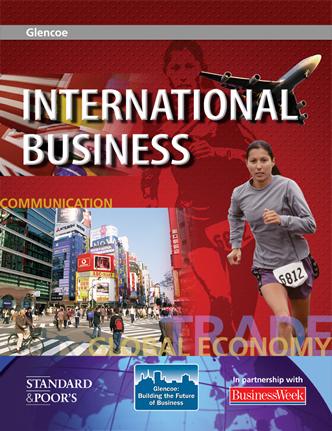
International BusinessChapter 2: Cultural and Social InfluencesBusinessWeek OnlineRead this article. Then write a paragraph that cites some examples of cultural benefits gained from attending a school such as HEC. Vive les DifférencesOn a French hilltop, multilingual business students from all over get a taste of teamwork Jennifer Miller was surprised when a fellow MBA student asked her to put on a yoga demonstration during an "India Week" cultural celebration last fall at the French business school, HEC. "I said, 'What, don't any of the Indian students do yoga?"' recalls the U.S.-born Miller. "But none of them did." Cultural stereotypes don't last long at HEC, which draws students from 55 countries to a hilltop campus in the Paris suburb of Jouy-en-Josas. The MBA program, established in 1969 at France's elite Ecole des Hautes Etudes Commerciales, has undergone a striking transformation. As recently as 1997, the majority of its students were French and the program was little known overseas. Today, thanks to aggressive international recruiting, only about 15% of students are French, while roughly one-third each are from Asia and the Americas. All core courses are taught in English, although about a quarter of the students opt for additional business courses in French. INTERPERSONAL EMPHASIS Along with greater diversity has come global recognition. "We are a symbol of France's openness to the world," says Associate Dean Valérie Gauthier, who oversees the MBA program. HEC has offered a dual-degree program with New York University's Stern School of Business since 2004, and with Tsinghua University's School of Economics & Management in Beijing since last year. HEC isn't the only European B-school with a strong international flavor. But its small size—just 200 students -- and relatively long 16-month program (compared with only 10 months at France's INSEAD and Switzerland's IMD) allow students to forge close relationships with others from different backgrounds. Indeed, an emphasis on interpersonal skills is one of HEC's selling points. During the first eight months, each student is assigned to a group of five or six students who work intensively together on projects. Disagreements arise more often from differences in professional training—engineers vs. financial types, for example—than from culture clashes, says Nicolas Hobeilah, a student from Syria. "If you're here to adapt and open your eyes, it's a great place to be," he says. For most students, HEC is merely the latest stop in an impressive global itinerary. Hobeilah graduated from the American University of Beirut and worked for a French company in Dubai, and Miller spent six years on development projects in Africa. Students are required to speak one foreign language besides English, and 80% speak at least three languages. An India Week celebration hardly seems necessary for such a cosmopolitan crowd. But participants say that such student-organized activities reinforce the esprit de corps. Every spring, HEC hosts a sports tournament for students from 10 European MBA programs who compete in events ranging from basketball to mountain biking. With that kind of competitive spirit, maintaining its place in the MBA big leagues should be easy. By Carol Matlack Copyright 2000–2006 by The McGraw-Hill Companies Inc. All rights reserved. |  |















